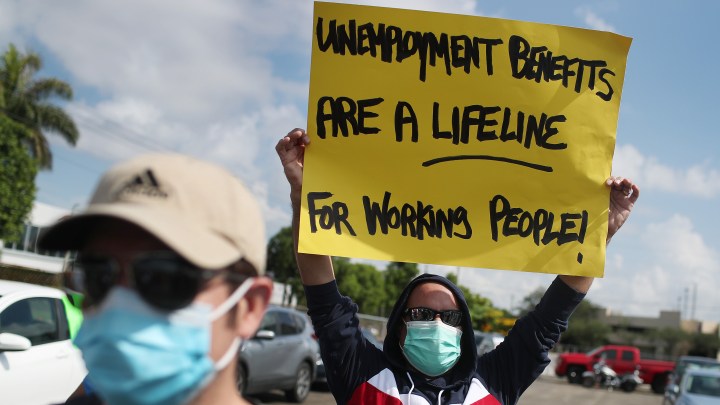
Why are unemployment rates higher for Black and Hispanic workers?
Why are unemployment rates higher for Black and Hispanic workers?

In prepared remarks at a congressional hearing Tuesday, Federal Reserve Chair Jay Powell said the impact of the economic downturn from the pandemic has not fallen equally on all Americans. He pointed to the unemployment rates of Black and Hispanic workers, which are still disproportionately high.
The overall U.S. unemployment rate for May was 5.8%. The rate for Hispanic workers (the term used by the Bureau of Labor Statistics) was 7.3%, more than a percentage point above the average. For Black workers, unemployment was at 9.1%, which is more than 3 percentage points higher than the overall rate.
Kristen Broady, a fellow at the Brookings Metropolitan Policy Program, asked, “And so … why is that?”
Her answers included: “I think much of it is structural racism. When you think about who was able to get vaccinated first, it was people who had broadband, they probably had jobs.”
Broady said people of color may have less access to training and education, and some employers still discriminate against job applicants because of their race.
Rebecca Givan, who teaches labor studies and employment relations at Rutgers University, said that to work, people need to “live in a place with good transportation, quality housing, access to affordable child care,” which are less available to workers of color.
Givan also said Black and Hispanic workers are more likely to have low-paid service positions. And some of those jobs were automated during the pandemic.
Tulane University economist Gary Hoover, who focuses on the intersection of economics, race and public policy, said we won’t see those jobs again. “Remember, there was a time when we had elevator operators. That’s a job, once it left, it never came back and never will.”
Hoover said it could take more than four years for the unemployment rates for Black and Hispanic workers to get back to where they were before the pandemic. Even then, they were higher than the overall jobless rate.
There’s a lot happening in the world. Through it all, Marketplace is here for you.
You rely on Marketplace to break down the world’s events and tell you how it affects you in a fact-based, approachable way. We rely on your financial support to keep making that possible.
Your donation today powers the independent journalism that you rely on. For just $5/month, you can help sustain Marketplace so we can keep reporting on the things that matter to you.

















